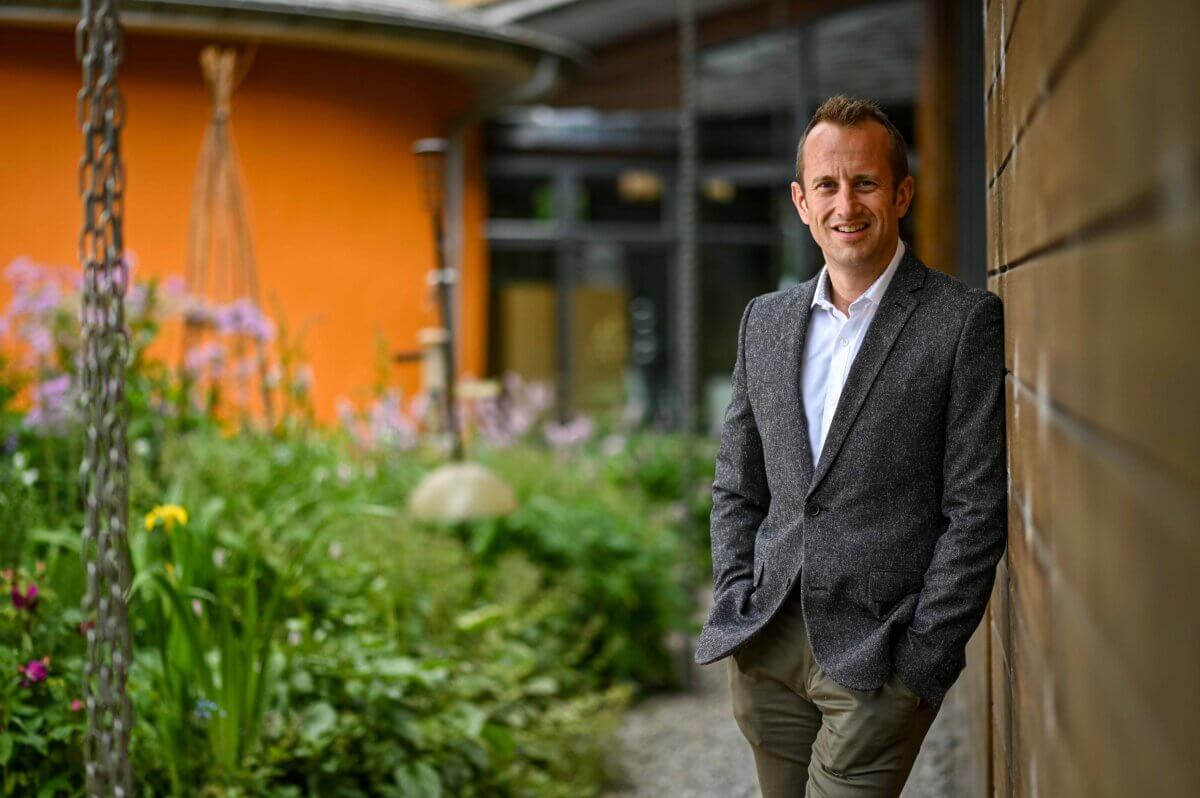Stepping out of the Shadow of the Individual Carbon Footprint

When it comes to climate change or sustainability, we talk a lot about the ‘carbon footprint’, whether that’s in terms of the amount of energy you use at home, the car you drive, the food you buy or the flights you take.
At Ecology, our whole business is centred around reducing environmental impact, from mortgages that reward energy efficient homes financed through sustainable savings, to the way we run our operations. Both as a business and as individuals we need to understand our impact – it informs our target to get to net zero emissions and is the measure by which we communicate our progress – and so the concept of the ‘carbon footprint’ has long been a yardstick by which we measure our sustainability.
Carbon Footprint – A Short History
According to the Oxford English Dictionary, the term ‘carbon footprint’ first appeared in the BBC Vegetarian Good Food magazine in 1999. In 2005 fossil fuel giant BP hired an advertising firm to popularise the ‘carbon footprint’ idea for individuals. It centred around calculating the carbon consumption of the ‘average American household’ based on ‘routine human activities’ and ‘lifestyle choices’. The result of this was that the onus of carbon reduction was squarely placed on the shoulders of individual.
As a 2021 Guardian Article pointed out, this campaign was merely one instance of a long and ongoing history of fossil fuel industry propaganda that ranged from outright climate change denial and economic scaremongering to greenwashing. By shifting the responsibility away from companies and onto individuals, the concept of the ‘carbon footprint’ was used to distract us from the far more consequential actions of multinational industries.
But we live in a society. The decisions available to us in our personal lives are shaped by the economic, social and political norms of the country we live in. The problem is that by focusing on individual actions – as we see in carbon footprint calculators – we ignore the wider influence of major polluters like the oil and gas industry as well as national and local government policies.
Which is why as well as helping our Members finance and build more energy efficient homes, Ecology has always made ‘agitating for change’ a key pillar of how we operate. We want to make it easier for everyone to insulate their homes thoroughly, generate their own electricity and enjoy fossil fuel-free heating. To live in places they can easily walk or use a bike instead of the car; buy sustainably grown food; take fewer flights etc. So we engage with partners across the finance and building industries to call for wider change than Ecology’s lending can enable on its own – calling, for example, for strong energy-efficiency and carbon standards for every new building, which would also mean much lower bills for occupants.
The Carbon Shadow
Taking a step beyond the ‘carbon footprint’, climate journalist Emma Pattee coined the phrase ‘carbon shadow’ in 2021. It describes a much wider concept of an individual’s impact on climate change and the environment than the direct actions of a ‘consumer’. An individual’s ‘carbon shadow’ would therefore include:
- Direct environmental action (e.g. recycle/reuse, avoid single-use plastics, fewer flights etc)
- How they vote
- How they invest their money
- The conversations they have with others
By taking direct action you are contributing your bit for the environment. That’s good. What’s great is that you can affect government policy by the way you vote; you can avoid your hard-earned savings being used to finance fossil fuels or deforestation by opening an ethical savings account; and you can inspire others by taking a lead or through the conversations you have.
As Dan Sherrard-Smith of MotherTree says, it’s about ‘the ripple effect’. Installing solar panels or an air source heat pump doesn’t just reduce carbon consumption, it can inspire friends and neighbours to do the same or, at least, think more about sustainability. ‘Our individual efforts,’ says Sherrard-Smith, ‘can amplify positive change by inspiring others and pushing for systemic reforms.’
The concept of the ‘carbon shadow’ fits in well with what we are trying to achieve for our members at Ecology. In our business and community lending, we also consider how projects might affect the community (e.g. promoting community integration, affordable housing etc).
We are totally transparent about where our savers’ money goes so you can be assured it is committed to sustainable building and never invested in fossil fuels, deforestation, armaments, tobacco, gambling or unsustainable industries. We are continually improving the energy efficiency of our office and plan to remove our long-lived gas boiler in 2025, getting us to zero carbon for office heating five years ahead of our original target!
A ‘Whole Planet’ Approach
Although our business is to provide sustainable mortgages and savings, we also hope to be the source of that ‘ripple effect’ mentioned above and inspire others.
We advocate a ‘whole house’ approach to energy efficiency, in other words, the right mix of design and features to minimise environmental impact and maximise personal comfort (e.g. understanding how the building already works, maximising natural benefits like sunny rooms and the right insulation type for its age, as well as solar panels, battery and heat pump).
In a similar way, we also promote what might be called a ‘whole planet’ approach in that we exist to create positive benefits for our individual members, the environment and the wider community. Moreover, we want others to do the same.
The retrofits, renovations and self-builds we support not only reduce the carbon footprint but also throw a light on the wider ‘carbon shadow’ of what individuals can do. Moreover, the work of our members provides tangible examples of what a carbon free and more sustainable future might look like. That’s why we write case studies and regularly share what we’re doing through this hub: to deliver our vision of a fair society in a sustainable world and inspire others to join us on that journey.
You can find out more about how we use your money in our free Guide To Simple and Sustainable Savings.
To learn more about energy efficient renovations, download our free Guide to Eco Renovation.



